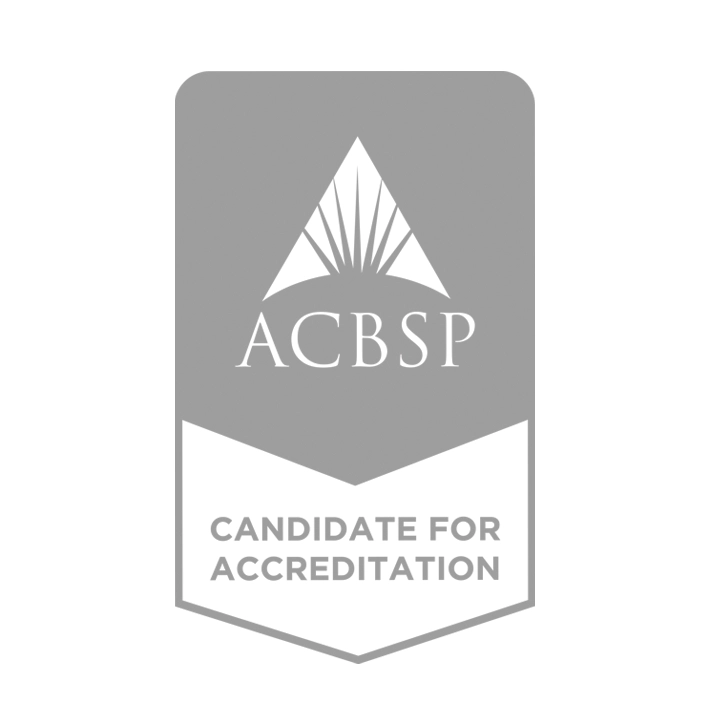

Business
Overview
Enhance your career with skills in marketing, sustainability, leadership, and accounting. This flexible program prepares you for various roles or specialized paths in corporate, entrepreneurial, or family business environments.
In today’s fast-paced business world, versatility and practical knowledge are essential. Lambton College’s Two-Year Business Ontario College Diploma provides a comprehensive education that blends foundational business principles with hands-on, industry-relevant experience. Whether you're looking to launch your career, pursue entrepreneurial ventures, or continue into specialized business studies, this program sets you up for long-term success.
Through this program, students gain expertise in business fundamentals such as marketing, accounting, and human resources management; strategic business management, including organizational behavior, business law, and operations management; entrepreneurship, focusing on developing the mindset to start or manage a business; and digital business trends like digital media marketing, business intelligence, and emerging technologies.
This two-year Business program spans four semesters, offering students a mix of core business courses in the first year, followed by advanced topics in the second year. The curriculum is designed to provide flexibility, whether you want to enter the workforce after graduation or transfer to a specialized program.
Sarnia - A Great Place to Study
Immerse yourself in Canadian culture in Sarnia's small community that cares.
Enjoy the beautiful city on the shores of Lake Huron, live affordably, and let us help you succeed in your future aspirations.
Admission Requirements
O.S.S.D. or equivalent with:
- Grade 12 English C or U
- Grade 11 or 12 Mathematics C or U
The admissions process is competitive and meeting the minimum academic requirements does not guarantee admission.
Lambton College reserves the right to alter information including admission requirements and to cancel a program or course at any time; to change the program curriculum as necessary to meet current competencies or changes in the job market; to change the pathways to third-party certification bodies; or to withdraw an offer of admission both prior to and after its acceptance by an applicant or student because of insufficient applications or registrations or over-acceptance of offers of admission. In the event Lambton College exercises such a right, Lambton College's sole liability will be the return of monies paid by the applicant or student to Lambton College.English Language Requirements
- IELTS of 6.0
- or -
- TOEFL iBT 69
- or -
- Passed Lambton Institute of English placement test
Meeting the minimum English requirements does not guarantee admission. Students with higher English proficiency scores will receive priority in the admission assessment process.
Accreditation Council for Business Schools & Programs (ACBSP)
This program has achieved ACBSP Candidacy status which means that this program aligns with global business standards and prepares you for success in your career.
ACBSP Candidacy signifies our commitment to high quality, industry relevant education, ensuring you gain not just knowledge but a competitive edge in the business world.

Develop your Business Skills
Students in this program can develop their business skills by participating in our world champion social entrepreneurship team - Enactus Lambton.

Costs
- Term 1 $7,711.63
- Term 2 $6,925.53
- Term 3 $7,625.53
- Term 4 $6,925.53
Total Cost of Program
Tuition fees are estimates and are subject to change each academic year. Fees do not include books (unless specifically noted), supplies or living costs.
Lambton College reserves the right to alter information including admission requirements and to cancel at any time a program or course; to change the location and/or term in which a program or course is offered; to change the program curriculum as necessary to meet current competencies or changes in the job market; to change the pathways third-party certification bodies; or to withdraw an offer of admission both prior to and after its acceptance by an applicant or student because of insufficient applications or registrations or over-acceptance of offers of admission. In the event Lambton College exercises such a right, Lambton College’s sole liability will be the return of monies paid by the applicant or student to Lambton College.
Technology Requirements
In order to keep pace with the requirements of each and every course in your program, Lambton College requires that each student have access to a laptop while studying at our college.
Courses
Business Mathematics I
This is a course in the mathematical concepts needed for success in the modern business world. We will study percentages, ratios and proportions, exponents; algebraic manipulation and solution of equations and equation systems; plotting, graphing and reading descriptive charts; deriving and presenting descriptive statistics.
Critical Thinking & Writing
In this writing course, students respond to current issues and news articles via various styles of paragraphs and essays. Students practice thinking critically and organize and hone their writing to ensure clarity and correctness in their messages. Students explore different perspectives, and through synthesis, analysis, and response, strive for clarity of message and diplomatic expression of opinion based on fact. One of the pillars of Lambton College is a commitment to sustainability and equity, diversity, and inclusion, including Indigenization of the curriculum; where appropriate, readings in this course will reflect this commitment. Critical Thinking and Writing lays the foundation for a subsequent research-writing course.
Workplace Communication Applications & Analysis
In today's management and administration workplace, having strong computer skills is essential. This course provides students with resources and guidance to develop skills in Microsoft Office applications, focusing on three key areas: Word, Excel, and PowerPoint. While learning about these programs, students develop skills in time management, accountability, and their ability to follow direction.
Human Resources Management
Effective Human Resources Management (HRM) is critical to the success of organizations today. This course will provide an overview of the key concepts of HR management and will include some history and theory of the HR function and important terminology. It will introduce students to the core competencies of effective HR practitioners and allow for self-assessment against these competencies. We will be discussing core HR practice areas such as Strategic Planning, HR Planning, HR Administration, Talent Management, Training Learning and Development, Performance Assessment, Total Rewards (including Compensation and Benefits) Employee and Labour Relations and Health and Safety in the workplace. In addition, the course looks at the legal environment for effective HR management, and the role of HRM in mergers and acquisitions and organizational change management.
Marketing Fundamentals
This introductory marketing course provides students with a comprehensive overview of the principles, concepts, and practices of marketing. Marketing plays a critical role in today's business landscape, helping organizations effectively connect with their target audiences, create value, and drive business success. This course explores the fundamental theories and techniques of marketing while also emphasizing the role of sustainability in creating long-term value for businesses, society, and the environment. Students are introduced to various marketing components, including consumer and business buying behaviour, customer segmentation, marketing research, product development, pricing, distribution, and integrated marketing communications.
Accounting Theory & Practice I
This course is an introduction to the theory of accounting and the standard methods of record-keeping. Accounting principles and concepts are emphasized in the preparation of financial statements for both service and merchandising organizations. Topics covered, take the student through the entire accounting cycle and include preparing and posting journal entries for business transactions, adjusting and closing entries, inventory costing and valuation, merchandising transactions, payroll, and bank reconciliations. This course is designed to provide the accounting skills required in business and for those students who intend to pursue a professional accounting designation.
Microeconomics
This course provides an understanding of how society chooses what goods and services to produce through an examination of the laws of supply and demand as well as how and for whom they are produced by examining the behaviour of firms, market structures and the distribution of income.
Job Search & Success
This course provides student with skills and knowledge to help support their career search and succeed in the workplace. Students align their personal skill set and goals to guide them on their career paths. They will learn how to effectively conduct a job search, build a professional and well-tailored resume and cover letter, and develop and practice interview techniques. Students will also develop their personal brand to help support effective career networking and aid in their job search. Teamwork and collaboration in the workplace are also discussed. Self-reflection is used to inspire insight and support their professional career journey.
Business Mathematics II
This course applies mathematical principles to problems of finance and probability. We will study simple and compound interest, annuities, bonds, project evaluation, laws of probability, and probability distributions.
Communications for Business
This course provides students with the skills required for professional, written, and oral communications essential to business success and subsequent courses. Students will develop database and internet research skills; prepare professional written business communication; and create, practice and deliver professional oral presentations. Students will research and document borrowed information in a business report and will demonstrate critical reading and thinking skills.
Entrepreneurial Mindset
This course introduces students, through a Canadian lens, to the development of an entrepreneurial mindset. The ability to think like an entrepreneur and act like an innovator are critical skills for success across industries and are proven tools to help distinguish individuals in the workplace. Whether applied in a start-up company, or as an employee within an existing organization (intrapreneurship), learners develop knowledge on how to navigate barriers to creating, developing, and sustaining innovative new initiatives. Topics related to the development of resilience, focus, productivity, creativity, and success are introduced to support learners in building their own entrepreneurial capacity.
General Education Elective
Accounting Theory & Practice II
A continuation of ACC 1003 introducing additional and more advanced concepts. Different forms of ownership; manufacturing operations; the management of short and long-term liabilities; the management of current, intangible and fixed assets; as well as exposure to various evaluation techniques are studied.
Introduction to Managerial Accounting
The managerial accounting course provides students with skills to become highly effective in environments where quick decisions are required. Students learn to use financial information to make quick strategic decisions including how to use data to evaluate the effectiveness of current operations. Learning to maximize the profitability of operations, students interpret financial statements and supporting financial data that drive decision making. Topics covered in this course include cost management, analysis of financial performance, application of pricing strategies, and budgetary planning and control for a business enterprise.
Macroeconomics
This course provides an understanding of the role of economics in business decision-making through the study of the methodology of economics, the components of the Canadian economy, cycles in the economy, macroeconomic goals, the measuring of economic performance, and government intervention in the economy as government attempts to manage the economy.
Sustainable Business Leadership
This course provides an exploration of sustainable business practices, focusing on Corporate Social Responsibility (CSR) and the United Nations Sustainable Development Goals (UN SDGs). Students examine how CSR can address social and environmental challenges, and how integrating these practices can enhance both organizational success and societal impact. Students also analyze the UN SDGs, learning how these goals can be applied to sustainable business strategies and personal success. The course includes practical examples to explore contemporary ethical business dilemmas and develop strategies for addressing them effectively. Additionally, the course emphasizes the importance of cultural competencies and inclusive practices in creating a more equitable business environment. Students gain skills in diversity, equity, and inclusion (EDI), and learn how to implement these practices to foster a more socially inclusive workplace and society. Through a mix of theory and practical application, students are equipped to lead with sustainability and ethics in today's global economy.
Business Statistics
This course is designed to provide students with an understanding of statistics. It includes regression analysis, probabilities and distributions, sampling, statistical estimation, and hypotheses testing.
Social Media Marketing
This course explores online marketing tools and tactics, such as social media, email, digital advertising and content marketing, that businesses can use to build a profitable relationship with their customers. Students engage in simulated social media, email and digital advertising campaigns to gain a better understanding of how to use these tools in their marketing efforts. Along with learning about digital and social media marketing, students learn general principles of marketing that are key for every business, regardless of industry or size: identifying who your customers are; understanding what needs they have that you are uniquely able to serve; creating a brand voice that speaks to them; identifying who your competitors are; deciding how to differentiate your offering from theirs; and creating a plan for engaging customers across social media and digital advertising platforms.
Secondary Market Research
This course introduces students to the constantly expanding world of secondary data research. This is the first of two research courses designed to develop research techniques and skills that meet the needs of today's business. Students develop their research technology skills by learning how to locate, evaluate, and qualify high-quality data. Students strengthen their ability critically interpret and evaluate the data collected and suggest potential trends and implications. An important focus of the course is learning to create appropriate tables, graphs, and infographics that aid in understanding and visualizing the data. Through a series of research assignments, students learn to craft high-quality written reports, presentations and infographics with accurate references and citations. Throughout the course, students are exposed to a wide variety of government, business, and economic information expanding their knowledge of the dynamic business environment.
Retailing
This course provides students with a solid understanding of the complexity of operating a retail business in Canada and serves as a good foundation for a career in retailing or other industries that support the retail supply chain. The course provides an overview of the retail industry in Canada and its importance in the Canadian economy. Trends impacting the dynamic retail environment and the changing retail customer are investigated with an emphasis placed on sustainability issues in retail operations. Students evaluate market opportunities, location considerations, store design and layout decisions to consider when planning a store. Students are introduced to retail financial analysis and the operational decision functions of buying, managing, and pricing merchandise.
The Legal Aspects of HR
This scenario/case-based course will provide students with insight into the legal aspects of human resources management through the entire employment relationship. The focus of this course will be on current federal and provincial employment-related legislation. Students will become familiar with specific areas of law and will apply learned concepts and terminology to address issues related to effective human resource management. Students will be introduced to content specific to workplace complaints and workplace investigations as this is an expanding area of responsibility for human resource professionals.
Ethical Leadership & Critical Decision Making
This interdisciplinary course combines insights from the field of business with social psychology and applied ethics to challenge students with an introspective look at some of today's most important ethical dilemmas. Students in PHL-1253 learn that the ethical standards employed by businesses and corporations ultimately concern the quality of human behaviours in those organizations. Human behaviour evolves from many influences: our past relationships, the ways we think and feel, how we respond to pressures in various social contexts, and how we deliberate in our daily thoughts and actions. Each of these influences is intimately involved with the quality of our ethical decision making.
General Education Elective
Business Law
In this course, students are prepared for a business environment increasingly affected by laws. They learn how laws must be understood and applied by management in the conduct of business. They also learn how to analyze a business situation from a general legal perspective. Emphasis is placed on methods of dispute resolution, contracts, torts, employment law, methods of carrying on business, sale of goods, and marketing law.
Operations Management
Operations and supply chain management have evolved into one of today's most important business disciplines. In the dynamic world of manufacturing and service delivery, designing systems more effectively and efficiently is a key source of competitive advantage. This course introduces business students to foundational concepts and practical methods used in the design and operations of manufacturing and service firms. Students explore strategic decisions related to how firms compete including operations strategy, supply chain design, process and facility design, and capacity planning. Students also learn tactical and day-to-day strategies for inventory management, forecasting, resource scheduling, quality control, project management, and lean operating systems.
Integrated Marketing Communication
In today's marketing world, there are more advertising contact points and specialized media competing for consumer's attention than ever before. To effectively break through the clutter, companies need to use a well-coordinated approach to selecting different promotional methods to differentiate their communication and present a consistent message to target audiences. This course introduces students to the concept of integrated marketing communications (IMC); a strategic planning process that helps companies identify the most appropriate and effective methods for communicating and building relationships with consumers. Students will learn the essential components of an IMC plan, including how to integrate advertising, sales promotions, public relations, direct marketing and digital media to maximize the impact of communications. Students will utilize this knowledge to build their own comprehensive marketing communications plan for a selected product or service.
General Education Elective
Organizational Behaviour
This subject is an examination of the contemporary Canadian business environment including the organization, leadership and management decision process which influences the behaviour of individuals and groups. Increased global competition, technological change and the rising expectations of both employees and employers have underlined the need for improved and more effective leadership. This subject provides a better understanding of this process.
Selling
This course is designed to provide students with an introduction to professional selling and the skills required to find success in relationship building and sales. Students are introduced to the many career alternatives available as well as the day-to-day expectations of a successful salesperson. The focus is to assist students develop their personal brand and strengthen their presentation, communication, and negotiation skills through role-playing, simulations, and applied learning exercises. Both traditional and digital prospecting methods are explored, along with the application of effective discovery, proposal creation, and problem resolution strategies, all in support of creating a customer relationship built on trust. Topics include goal setting, planning, time management, sales analytics, key performance indicator analysis, and customer relationship building. Students apply their learning in a simulated, professional business-to-business sales environment.
Primary Market Research
This course emphasizes the important role that primary market research plays in guiding strategic decision-making. Students build on their market research skills as they develop primary research instruments through practical application. This includes creating and implementing tools, analyzing the data, and presenting the findings with recommendations to their client.
Learning & Development
This course will provide students with an opportunity to explore diverse approaches to learning to address organizational and/or individual needs for development. This will be accomplished through an integrated case using adult learning principles, fundamental theories of learning, design and development choices and evaluation methods. Current trends and the use of technology will also be highlighted. This course will also compare and contrast formal performance management systems with current approaches to the motivation and management of performance. By examining fundamental theories of motivation we will understand the implications of performance management to employee motivation and success.
Contact
Centre for Global Engagement
LAMBTON COLLEGE SARNIA
1457 London Road
Sarnia ON N7S 6K4
After Graduation
Employment Opportunities

The solid grounding in business foundations and the focus on acquiring practical skills has served our graduates well when it comes time to begin their careers. Previous graduates have found employment at various levels in banking, retail, sales, sports management, supply chain management, and media and promotion. Some graduates have opted to pursue entrepreneurial opportunities.
Pathways
Transfer to Programs within Ontario
- Honours Bachelor of Commerce - International Business Management
- Honours Bachelor of Commerce - Business Management
- Honours Bachelor of Interdisciplinary Studies
- Two-Year Business Diploma
Want to see more Ontario transfers? Visit ONTransfer.ca.
Transfer to Programs outside of Ontario
- Bachelor of Business - enter third year of three-year program
- Bachelor of Business (Honours) - enter third year of four-year program
Looking for Support After Graduation?
The International Graduate Services & Support Centre (GSSC) is a place dedicated to assisting International alumni as they seek employment and settle into Canadian life following graduation.
Post-Graduate Employment
International students who successfully complete their programs of study at Lambton College may be eligible to apply for a Post-Graduation Work Permit (PGWP) Program. This program allows students to gain valuable Canadian work experience.
A work permit under the PGWP may be issued for the length of the study program, up to a maximum of three years. A post-graduation work permit cannot be valid for longer than the student's study program, and the study program must be a minimum of eight months in length. The length and approval of the PGWP is determined solely by Immigration, Refugees and Citizenship Canada (IRCC).
Students must meet the eligibility requirements to apply for a post-graduation work permit.
Immigration Regulations & Changes
Immigration regulations are legislated by the Federal Government of Canada and are subject to change at any time without notice. Students are responsible for ensuring that they are in compliance with all Immigration, Refugees and Citizenship Canada regulations at all times during their studies and while in Canada. Lambton College staff are not authorized to provide advice or guidance on immigration-related matters. Prospective applicants and current students should consult the Immigration, Refugees and Citizenship Canada website or call the IRCC Call Centre at 1-888-242-2100 to answer or clarify any immigration-related questions or information.
More Information
Student Responsibilities
- Course and program delivery schedules are proposed and subject to change for each intake.
- Students are required to bring their own laptop with wireless capability.
- Students are advised to bring an official copy of their most recent police clearance, driver's license, and vaccination record from their home country.

Technology Requirements
It is recommended that students purchase a laptop with a Windows operating system.
Internet Speed Requirements
For best performance for students learning remotely, an internet connection with a minimum of 40 Mbps download and 10 Mbps upload speed is recommended in order to effectively use video conferencing and remote lecture delivery software as well as, other online resources remotely. Due to the large area over which students may be dispersed, we are unable to recommend a specific provider, so you will need to inquire around your area to find one that best suits your needs.
Minimum Laptop Requirements
In order to access the internet and virtually-delivered software and courseware, student laptops should include the following at a minimum. By meeting the following specifications, students will be equipped to access software and courseware on their laptop through the internet:
- Intel i5 8th Gen Processor or equivalent
- 16 GB of RAM (with a minimum of 8 GB)
- 100 GB HDD or more
- HD Graphics
- Webcam with a microphone
- Wireless 802.11n/ac 5ghz capable
- Windows Operating System (Windows 11)
Please note that Chromebooks and MacBooks may not support all software required for your program; students should verify compatibility with their professors.
Software
To ensure students are getting the most our of their classroom experience, some software will be required.
Lambton College has made this software easily accessible online. Students can leverage our Microsoft Office 365 software packages and services. In addition, much of the software you require for your courses will be available on demand for use on any device - on or off campus.